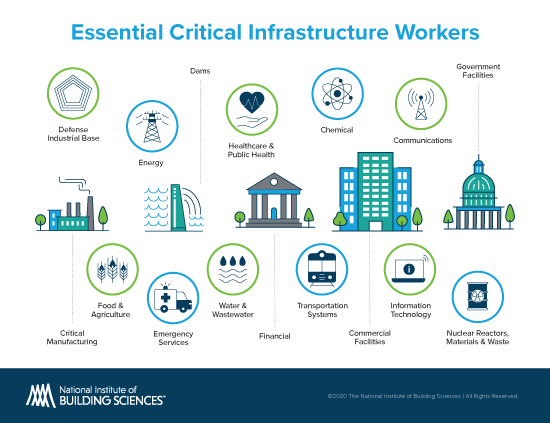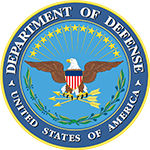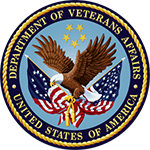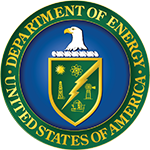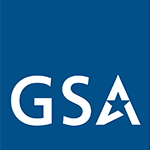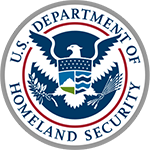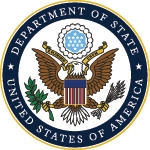May 19, 2020
NIBS Second COVID-19 Virtual Town Hall
Video and session notes of the National Institute of Building Sciences' second virtual town hall are now available on the NIBS website. Stakeholders offered advice on how to prepare for safely reopening businesses and offices to workers and customers. Sponsored by NIBS Consultative Council, the town hall featured leaders from across the building industry talking about re-occupancy of spaces used to house COVID-19 patients and/or medical personnel, sanitation, and mental health.
Topics - Building Science
- COVID-19
May 16, 2020
McKinsey Report Outlines How Leaders Can Shape the "Next Normal"
McKinsey & Company's report, "How Construction Can Emerge Stronger After Coronavirus," presents an analysis of the building industry's current disruptions and predicts the trends that will shape our "next normal" as we return to the workplace. The article also offers seven actions that will help us prepare, including accelerated rollout of digitization and bolstering supply chain resilience.
May 15, 2020
GSA Provides Safety Measures, Invites Questions on its COVID-19 Website
The U.S. General Services Administration (GSA) website has outlined several measures it has taken to enhance safety and health in federally occupied spaces in response to COVID-19. It website addresses topics such as: what to do if COVID-19 is suspected in a GSA-owned building, recommended cleaning services and who pays for them, child-care centers, and recommendations to tenants and lessors. The website also includes a link that allows users to get answers to additional questions they may have.
Topics - COVID-19
- Facility Management
May 14, 2020
Dodge Data & Analytics Offers State-by-State Construction Updates
Dodge Data & Analytics leads off its website, Construction.com, with a continually updated, running list of articles that present analysis of the current condition of construction on a state-by-state basis. Topping this week's list is an update on construction in New Jersey, which is slated to reopen on May 18.
Topics - COVID-19
- Facility Construction
May 14, 2020
NYC Office Market Faces Uncertainty Post-COVID 19
Commercial Observer magazine's "Class A Meet Plan B: How the Coronavirus Could Impact NYC's Newly Built Office Space" explains that the post-COVID 19 pain for the Big Apple's office space market goes deeper than construction; it includes absorbing the space that failed businesses will leave behind. Compounding the problem will be a post-disaster historically cautious survivor's market, which will tend toward renewing existing space rather than upgrading to bigger and better space. Also adding uncertainty to the mix is general rethinking about how much office space actually is needed, as telework proves its efficacy and more firms and businesses adopt and adapt the process.
May 13, 2020
HKS Explores COVID-19's Effect on Multifamily Design
Four HKS Architects staffers teamed up to write "How Design Will Shift to Accommodate Post-COVID-19 Multifamily Living," posted on the firm’s website. They point out that while single-family homeowners have more leeway to adapt their homes to new spatial needs dropped on us so suddenly by COVID-19, many apartment tenants feel boxed in by intractable surroundings. The article explores balcony variety, mudrooms, hidden spaces, flexible workspaces, and access to light and air for home offices of the future, and presents some case study drawings that put these concepts to work.
May 11, 2020
AIA Announces International Distribution of Its Alternate Care Site Checklist for COVID-19
The AIA's alternate care site checklist, produced by a special COVID-19 task force, is being distributed internationally by the U.S. State Department, which translated the tool into French, Spanish, and Portuguese. The checklist, just released in its second version (V2), highlights important criteria for evaluation of buildings considered for use as temporary healthcare operations during a pandemic. Version 2 of the translated document, which will be made available to embassies around the world, reflects recommendations from groups such as the Centers for Disease Control and Prevention and the U.S. Army Corps of Engineers.
May 11, 2020
Construction Loses Record-Breaking 975,000 Jobs in April
Despite the fact that a number of states have declared construction an "essential service" that has allowed job sites to remain open, Construction Dive reports that the construction industry lost 975,000 jobs from March to April. The brief uses stats from the Associated General Contractors, which calls the 13 percent overall workforce drop the worst in the industry's history.
May 10, 2020
NYC Issues Answers to FAQs for Residential and Commercial Buildings
The New York City Department of Health issued succinct and clearly written guidelines for residential and commercial building owners in response to frequently asked questions. Topics covered include fire safety, ventilation and humidification requirements, repairs and cleaning procedures, building deliveries, tenant access to common areas, and communications to tenants.
May 7, 2020
NIBS Sponsors COVID-19 Virtual Town Hall for 1,700 Registrants
More than 1,700 people from all facets of the building industry signed up to take part in the May 7 NIBS COVID-19 Virtual Town Hall: Preparing for Re-entering Buildings, which honed in on the topics of indoor air and water safety, public transportation, and the "new normal" for interior public and private spaces. Hosted by NIBS President/CEO Lakisha Woods and moderated by NIBS Chair Carl Hedde, the 90-minute virtual meeting featured subject matter experts Dr. G. Scott Earnest, Acting Director for the Office of Construction Safety and Health, National Institute for Occupational Safety and Health; Thomas H. Phoenix, Principal, CPL Architects & Engineers, PC; Treasurer, NIBS Board of Directors; Fellow, ASHRAE; Henry H. Chamberlin, President/Chief Operating Officer, BOMA; Daniel Nichols, Assistant Director of fire/life safety, Metropolitan Transportation Authority Metro-North Railroad; and Pete DeMarco, Executive Vice President of Advocacy & Research, International Association of Plumbing and Mechanical Officials (IAPMO).
May 7, 2020
ICC Provides Tools to Help Local Governments Advocate for Code-Related CARES Assistance
The International Code Council (ICC) has launched a Coronavirus Advocacy page, which includes links to a factsheet describing: CARES Act funding sources that can be used to fund code department virtual needs, which state/local governments are receiving how much of those funding sources, eligible activities, and how interested organizations can engage in those programs. The page also includes talking points for discussing how and why government recipients of CARES Act resources should direct funds to code departments for development of remote capabilities. Contacts to Code Council field staff responsible for different states are part of the package.
May 5, 2020
New Device Tracks Construction Workers Proximity, Interaction Times
Construction Dive web site featured an article explaining the workings of Triax's Proximity Trace, a system that uses "trace tags" attached to construction workers’ helmets to track their proximity to each other and the duration of their interactions. By providing audible and visual alarms when workers come within close proximity to each other, the system reminds workers to properly distance on the worksite. In addition to actively alerting workers who are in close proximity, the tags collect worker interaction data and maintain a log of interactions with other tags as well as the duration of those interactions. Data made available in minutes can help track and therefore limit the spread of COVID-19.
Topics - COVID-19
- Facility Construction
May 4, 2020
From ASHRAE Task Force: HVAC Systems Should Be Checked Before Buildings Reopen, Due to COVID-19
ACHR NEWS interviewed Dennis Knight, PE, FASHRAE, member of ASHRAE's Epidemic Task Force, and principal/engineer at Whole Building Systems in Charleston, SC, about how contractors can help commercial building owners make sure their HVAC systems are operating safely and efficiently after COVID-19 restrictions are lifted and occupants start returning to work. Knight outlines minimum requirements for inspection of HVAC, and refers readers to ASHRAE Standard 180-2018, Standard Practice for the Inspection and Maintenance of Commercial Building HVAC Systems.
May 4, 2020
MA High Technology Council Develops Back-to-Workplace Strategy
The Massachusetts High Technology Council has assembled a team of experts to help operationalize the White House "Opening America" framework for the Commonwealth of Massachusetts. The team has produced a report, "The War on COVID-19," which outlines a framework for the state’s recovery and return to work. The plan centers on sequencing segments of the workforce returning to work, according to risk to lower hospitalization rate; while waiting for a vaccine, implementing effective treatments to curb hospitalization and fatality rates; and implementing policies and procedures to reduce the rate of spread.
May 1, 2020
May Day: Construction Reopens in PA with State Guidance in Place
Construction businesses in the Commonwealth of Pennsylvania are permitted to open on May 1, with state guidance detailing social distancing, sanitation measures, and the need for a pandemic safety officer on site. State guidelines were developed using guidance created by the General Contractors Association of Pennsylvania. Local governments may choose to impose stricter measures. The governor's guidance also permits in-person inspection and appraisals for all construction projects authorized under this guidance to begin on May 1.
Topics - COVID-19
- Facility Construction
Apr 30, 2020
Gensler Develops An Air Filtration Primer for Building Owners and Developers
Inspired by a recent panel discussion with their firm and three leading mechanical engineering firms, Gensler staff pulled together a collection of tips from MEP experts on how to improve indoor air quality to meet the challenge of viral threats. The primer covers methods to eliminate airborne pathogens in existing buildings, as well as design strategies for new buildings.
Topics - COVID-19
- Indoor Air Quality
Apr 30, 2020
Washington State Builders, Labor Reps, Hammer Out Phase One Reopening Requirements Together
An advisory group in Washington state comprised of the Associated General Contractors of Washington, Building Industry Association of Washington, Association of Washington Business and 3 labor groups: Washington Building Trades and the Operating Engineers' and Carpenters' union, has devised a three-pronged approached toward reopening construction projects, beginning with low-risk commercial, residential, and road projects that already have started. An April 22 article by Benjamin Mennick in the Seattle Daily Journal of Commerce presents Phase One jobsite requirements in detail.
Topics - COVID-19
- Facility Construction
Apr 30, 2020
Autodesk Partners with FMI for Industry Survey on Trust
Last year, Autodesk partnered with FMI to survey more than 2,500 construction professionals worldwide. Participants were asked to rank the level of trust within their own organization and between collaborators on projects. The study suggests that businesses and project teams not only can measure trust, but actively improve it. Construction firms can take proactive steps to build stronger relationships, deliver more certain outcomes and, ultimately, improve their profitability. The survey report, "Trust Matters: The High Cost of Low Trust," is available for free download.
Apr 29, 2020
Gensler Architect Depicts "A Day in the Life" After Returning to the Office in China
Architect Francois Chimier gives us a compelling, diarylike account of the security and cleaning/disinfecting gauntlets he encounters when putting in a day at his office in Beijing. Personal tracking, a gamut of phone apps, and toothpicks for touching elevator buttons—along with the "usual" hand sanitizers and masks and social distancing rules—all have become de rigueur.
Apr 29, 2020
Architects Ponder the Future of Work
Dwell magazine's Jennifer Baum Lagdameo penned “Architects and Designers Weigh in on the Future,” from discussions with members of seven firms who predict what work will be like after the COVID-19 crisis, and we adjust to the "new normal." Take a look at designs that promote social distancing, teleworking, and new ways to make workwise connections.
Apr 28, 2020
BOMA Offers Post-Covid-19 Building Preparation Guidelines
BOMA International recently released its Getting Back to Work: Preparing Buildings for Re-Entry Amid COVID-19 report to offer guidance to building owners for preparing commercial properties for the safe return of office tenants, building personnel, visitors, vendors, and contractors. The report identifies planning, operational, and safety procedures as well as protocols that should be implemented, updated, or enhanced for the post-COVID-19 world. The guidance document provides a framework for phased development of individual property or portfolio plans.
Topics - COVID-19
- Facility Management
Apr 27, 2020
CISA Guidelines Detail Measures to Protect Critical Personnel and Equipment
The Office of the Interagency Security Committee recently led the development of Critical Infrastructure Operations Centers and Control Rooms Guide for Pandemic Response on behalf of the U.S. Department of Homeland Security’s Cybersecurity and Infrastructure Security Agency (CISA). This document, geared toward all 16 critical infrastructure sectors, provides considerations and mitigation measures for operations centers and control rooms, but can be applied further to any critical node that is required to continue functioning in a pandemic environment.
Topics - COVID-19
- Infrastructure
- Security
Apr 26, 2020
Construction Dive Interprets New Normal
Construction Dive electronic newsletter has taken a "deep dive" look at what the new normal will be for construction in the post-COVID-19 world. The feature outlines 8 major changes to construction in this new world, including predictions on union influence, change in project-type demand, and what will happen with modular construction.
Topics - COVID-19
- Facility Construction
Apr 24, 2020
Dodge Study Indicates Contractors Expect Worst COVID-19 Effects to Hit in the Next Three Months
To better understand the degree of impact of COVID-19 on the construction industry, Dodge Data & Analytics conducted a survey of 172 contractors across the U.S. from March 19 to March 31. The results of that study, published in the Keeping Business Going in a Time of Crisis: Findings from the Dodge Contractor Panel Study on Contractors’ State of Business During the COVID-19 Outbreak white paper, reveals that most contractors are feeling at least some impact. Dodge has also made a suite of tools for contractors and other construction industry professionals available on its website.
Apr 24, 2020
Continually Updated in ARCHITECT magazine: Here's How Architects, Designers, and Makers Can Help and Volunteer in the Coronavirus Era
ARCHITECT magazine Editor Wanda Lau presents the many ways architecture firms are giving back, from designing emergency health-care facilities to 3D-printing masks to teaching classes for their colleagues. And there’s ice cream involved.
